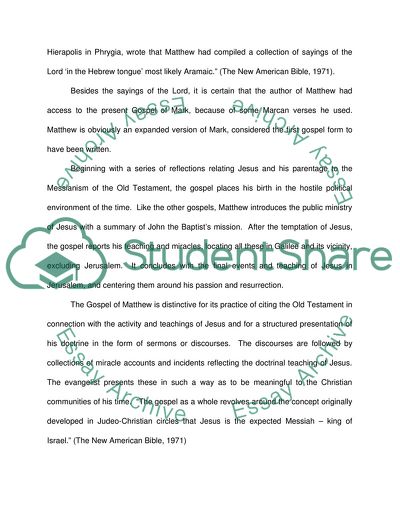Cite this document
(A Leading Apostle and Evangelist of Christ Book Report/Review, n.d.)
A Leading Apostle and Evangelist of Christ Book Report/Review. Retrieved from https://studentshare.org/religion-and-theology/1708855-the-gospel-of-matthewbible-book-review
A Leading Apostle and Evangelist of Christ Book Report/Review. Retrieved from https://studentshare.org/religion-and-theology/1708855-the-gospel-of-matthewbible-book-review
(A Leading Apostle and Evangelist of Christ Book Report/Review)
A Leading Apostle and Evangelist of Christ Book Report/Review. https://studentshare.org/religion-and-theology/1708855-the-gospel-of-matthewbible-book-review.
A Leading Apostle and Evangelist of Christ Book Report/Review. https://studentshare.org/religion-and-theology/1708855-the-gospel-of-matthewbible-book-review.
“A Leading Apostle and Evangelist of Christ Book Report/Review”. https://studentshare.org/religion-and-theology/1708855-the-gospel-of-matthewbible-book-review.


